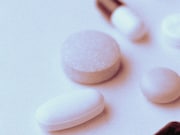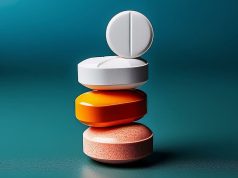OTC medicines lead to $146 billion in annual clinical and drug cost savings
TUESDAY, April 2, 2019 (HealthDay News) — On average, each dollar spent on over-the-counter (OTC) medicines saves the U.S. health care system $7.20, totaling nearly $146 billion in annual savings, according to a report released March 18 by the Consumer Healthcare Products Association (CHPA).
The CHPA worked with research firm IRI to consult published data sets and economic modeling and to survey more than 5,000 consumers on how they would treat symptoms if OTC medicines did not exist. Prescription drug costs were based on data from Symphony Health. The nine major therapeutic categories of OTC medicines analyzed were for acute and chronic self-treated conditions: allergy, analgesics, antifungals, cough/cold/flu, lower and upper gastrointestinal (GI), medicated skin, sleep aids, and smoking cessation.
According to the report, the value of OTC medicines is generated from nearly $95 billion in clinical cost savings (avoided doctor’s office visits and diagnostic testing) and nearly $52 billion in drug cost savings (lower-priced OTCs versus higher-priced prescription drugs). Three categories of OTC medicines — medicated skin, lower GI, and upper GI — made up 61 percent of the total OTC savings, driven primarily by the price difference between OTC and prescription products. Approximately $73.6 billion, or 50.3 percent of total savings, were captured by commercial insurance plans.
“The evidence is clear that OTC medicines help ease the tremendous burden on the health care system by empowering consumer self-care, thereby allowing over-stretched health care practitioners to focus on the diagnosis and treatment of patients with more serious diseases and medical conditions,” Scott Melville, president and chief executive officer of the CHPA, said in a statement.
Copyright © 2019 HealthDay. All rights reserved.








